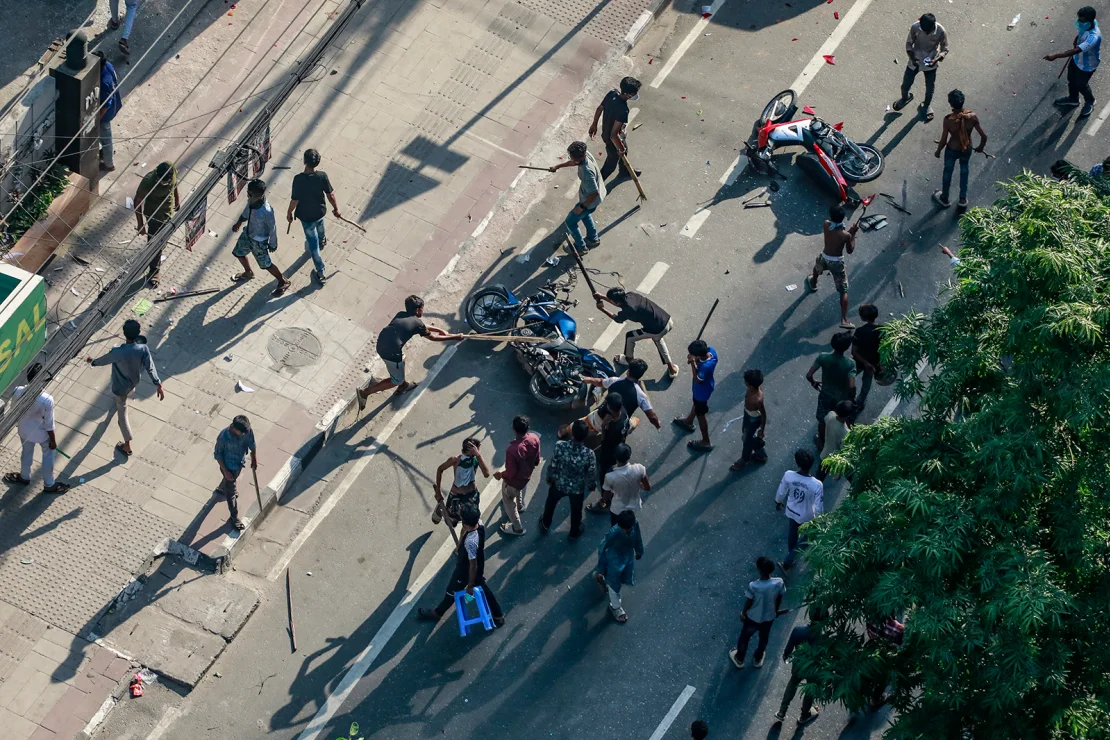Chaos and Bloodshed in Bangladesh: Students Demand Justice
DHAKA: Massive protests have erupted in Bangladesh, turning deadly as students, government supporters, and armed police clash violently. The trigger? A deeply controversial civil service job quota system that many believe is grossly unfair.
Dozens have been killed, and hundreds more injured as riot police unleash tear gas and rubber bullets on demonstrators. The streets and university campuses of Dhaka and other cities are swarming with angry crowds wielding sticks. The tension is palpable, and the atmosphere is electric with fury.
In a dramatic turn of events, state broadcaster Bangladesh Television (BTV) went off the air after student protesters allegedly set its headquarters on fire. Calls for a nationwide shutdown are growing louder, posing a significant challenge to Prime Minister Sheikh Hasina’s government.
Authorities have cut mobile and internet services, closed schools and universities, and deployed security forces to stamp out the unrest. However, human rights groups are accusing them of using unlawful force against the protesters.
So, why are these students so furious? It all boils down to the government’s quota system. More than half of the civil service jobs are reserved for specific groups, with 30% set aside for relatives of veterans from the 1971 war of independence. While these roles offer job security and higher pay, many students see the system as discriminatory and biased towards supporters of Hasina’s ruling Awami League party. They demand a merit-based recruitment process.
Maruf Khan, a Bangladeshi student in Australia, explains the frustration: “About 500,000 to 600,000 people are competing for 600 to 700 government jobs, and with a 56% quota, it’s not easy.”
High unemployment, especially among the youth, exacerbates the anger. Despite recent economic growth, inequality has widened, leaving over 30 million people without work or education.
The quota system was scrapped in 2018 after similar protests, but in June, the High Court reinstated it, sparking fresh outrage. On July 10, the Supreme Court suspended the quotas for a month to review the case.
Critics argue the system creates a privileged class benefiting from their connections. Student protester Tahmeed Hossain sums it up: “The quota was logical in the past, but now it’s discrimination.”
The protests began at Dhaka University on July 1 and quickly spread. Violence erupted on July 15 when ruling party supporters allegedly attacked student protesters. The situation has only worsened since, with the government deploying the paramilitary Rapid Action Battalion, notorious for human rights abuses.
The nation holds its breath as the battle for justice and equality rages on.

